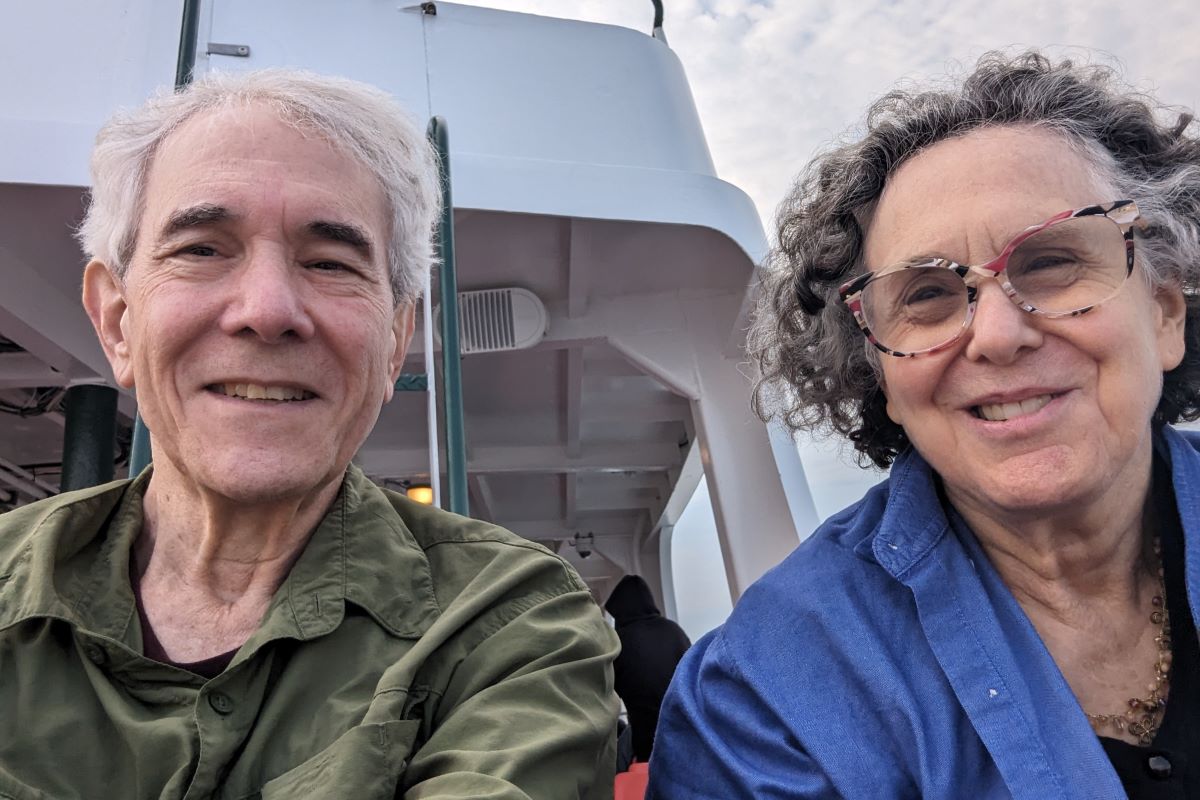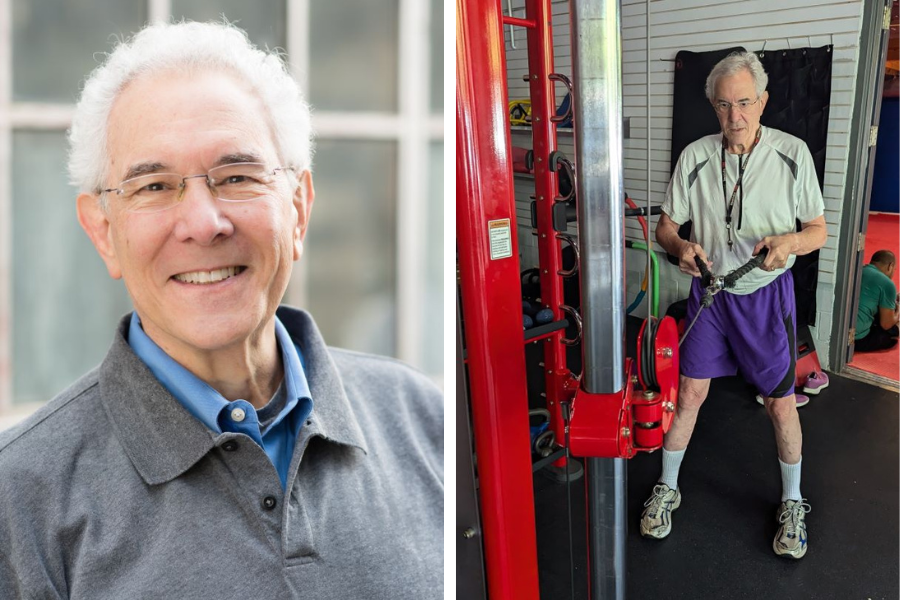
Andy Segal is an Atlanta-based freelance writer/producer/director of video content. His work has been recognized with Emmy, Peabody and DuPont-Columbia Awards. But in November 2022, Andy’s life took a turn when he was diagnosed with pancreatic cancer. The following is his story, in his own words.
I look different.
There’s a long surgical scar on my abdomen. And after chemotherapy, my once-curly hair is straight. What I now see in the mirror took some getting used to, one of several psychological challenges — some small, some large — from pancreatic cancer.
I was lucky. While pancreatic cancer has a well-deserved reputation for lethality, mine was diagnosed early because I had a cluster of symptoms that popped up out of nowhere: dark urine, diarrhea and itchy skin. To figure it out, my primary care physician, Dr. Kirk Paulk, ordered an MRI. He told me it showed a tumor on my pancreas and added, “This is great news!” What!! How can anything about pancreatic cancer be “great news”? In my case, the tumor — slightly larger than a quarter — was not tangled up with major blood vessels and there was no evidence of metastasis. I was an excellent candidate for surgery, and that was great news.
Dr. Paulk referred me to two Northside Hospital doctors who frequently share patients. They collaborated seamlessly: Dr. Eddie Abdalla at Atlanta Liver and Pancreas Surgical Specialists and Dr. Nishan Fernando, an oncologist at Georgia Cancer Specialists. Thus began my marathon.
I was never afraid. (Remember: “This is great news!” according to Dr. Paulk.) Rather than fear, the first psychological hurdle was accepting my new status as a vulnerable patient. Because I am generally self-reliant, I envisioned recovering from surgery and transcending the side effects of chemotherapy without a lot of drama. I planned to handle meals, exercise and doctor appointments on my own.
My wife, however, was certain I would need extensive help from her and an army of friends, neighbors, cooks, visiting nurses and physical therapists. I didn’t want anything to do with any of them. I was adamant and we butted heads. It was emotionally stressful for both of us until we eventually found common ground.
I was as protective of my privacy as I was of my independence. At first, we told only a small inner circle about my diagnosis. Before long, I felt that not telling friends was as dishonest as outright lying. So, we told more people. Occasionally, the openness backfired and someone would blurt out, “Oh, my relative died of pancreatic cancer!” Even so, a support team was forming, whether I wanted it or not.

Recovering from the surgery was actually straightforward and relatively quick. But the chemotherapy after surgery was agony. Three months of unremitting nausea, diarrhea, fatigue, dehydration, hair loss, incessant hiccups and painful tingling when I touched anything cold. I lost so much weight I was skeletal.
I wanted to give up. But my family and friends offered encouragement, advice, grocery shopping, cooked meals and rides to doctor appointments. There were phone calls, texts and get-well cards. Some were from people who had battled cancer — friends I had neglected to call when they were sick. I regret my immaturity, and it won’t happen again.
Today, two years after my diagnosis (“This is great news!”), my prognosis is reasonably good. The post-surgery pathology report said the excised tumor had clean margins, which meant the surgeon got it all. And the 34 lymph nodes he removed were cancer-free. More great news.
To monitor the risk of a recurrence, my oncologist orders a CT scan and blood test every three months. So far, so good. It’s interesting that those surveillance appointments are the only times I look back at what I went through. The two-year ordeal is compartmentalized as though it happened to somebody else. I don’t know whether that’s good or bad, but it is not what I expected.
I thought a life-or-death crisis was supposed to remake me with a new outlook on life: Every day is precious! Live in the moment! Be grateful! Of course, I appreciate the extraordinary medical care and the steadfast support of friends and family. But there was no epiphany.
Instead, I’ve simply moved on. I didn’t do it on purpose. It just happened. I work part-time. I’m in a book club. I volunteer. I hang out, go to the gym and visit my grandchildren. In short, my life, at age 74, is normal. And I consider that to be, as the doctor says, “great news.”
*The health story shared here is for informational purposes only and is not medical advice. Patients should consult with their own physician before making medical decisions.
